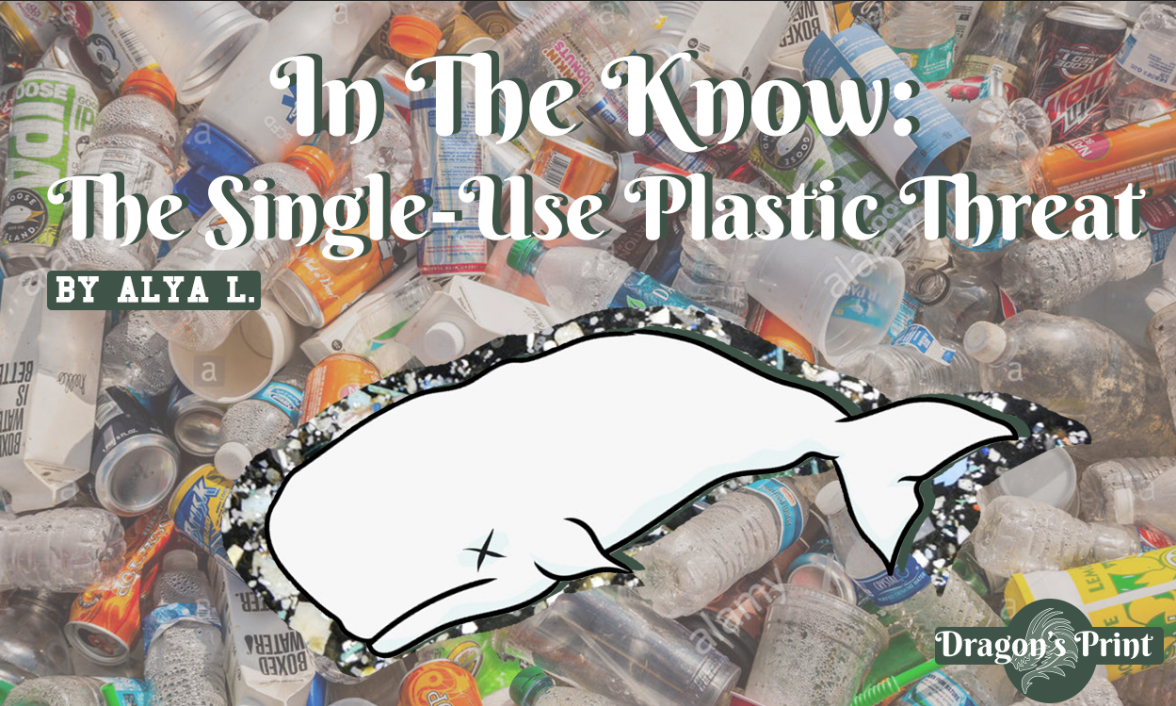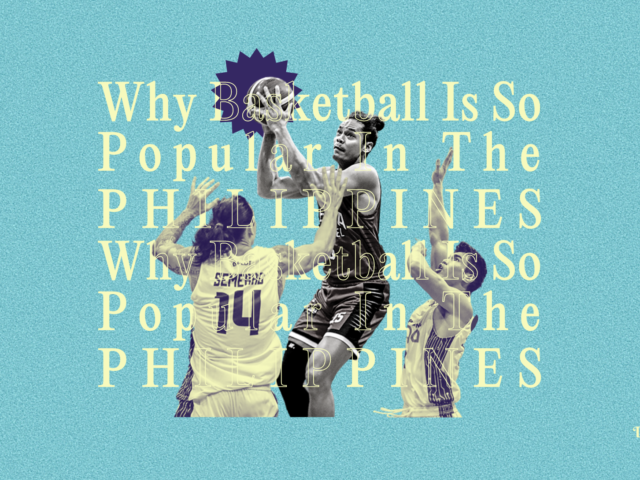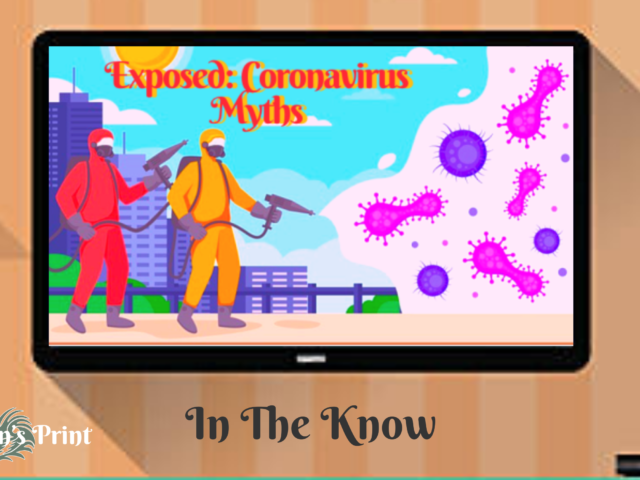A few weeks ago, I saw this article of a dead whale that was washed up in the Philippines. It was reportedly filled with 40 kilograms of plastic, in which some of the identified objects were 16 rice sacks and a great number of shopping bags. If this does not alarm you, then you are not being aware enough. Knowing that my country has committed such acts that have led to this shocking event makes me want to change myself and realize the impact that we individuals may have.

The issue over here really is the topic of single-use plastics. These items are very prevalent in our Filipino lifestyle – just look at street food vendors who use plastic cups, plastic straws and utensils, and plastic bags for just about everything they sell. Additionally, these single-use plastics have become more widespread due to sari-sari stores, which are small stores on the side of the road selling a variety of products used in our day-to-day lives. The problem with sari-sari stores is that nearly everything you see in the store has plastic packaging, such as plastic sachets of shampoo, dish soap, laundry detergents, coffee, powdered drinks, and condiments. Even crackers and other snacks that an average Filipino would buy use a great amount of plastic packaging, especially for the individually packed ones. This has greatly contributed to our country being categorized by the World Wildlife Fund (WWF) as one of the world’s leading plastic polluters. In 2018, they reported that “The low cost and convenience of plastic sachets, as well as inefficient waste disposal, has made the Philippines one of the world’s leading plastic polluters, with tremendous negative impacts on the environment.”
Wanting to make a difference doesn’t have to begin with some grand gesture.
Likewise, on a larger scale, big companies, namely Nestlé, Unilever, and Universal Robina cater to low-income families that often purchase their personal care products and even food in small amounts. This is why products are sold in widely popular sachet sizes (Casal, 2018). This contributes to the Philippines’ problem of the over-consumption of single-use plastic products and makes it more difficult for the country as a whole to fight against plastic waste. Our goal of lessening single-use plastic will not be effectively accomplished if big companies won’t take any actions as well. I am aware of and have seen the efforts of companies trying to revamp their packaging by utilizing less or no plastic at all. Additionally, even malls and stores widely use paper bags instead of plastic bags. It’s an effort, but stores like supermarkets dedicating two days of no-plastic bags do not and cannot make up for the other five days of continuous use of plastics.
Now, I know that asking all the sari-sari stores and big businesses to stop selling and to go out of business is beyond my power, and it simply cannot happen because shutting down these stores limits the accessibility of needs for those Filipinos with low budgets. However,
You can start with yourself, by watching your own actions, especially in public:
- Ask yourself if you really need that straw or those plastic utensils when eating out.
- Remind yourself to bring a tote bag or canvas bag the next time you go shopping.
- Bring a water bottle to avoid having to buy bottled water.
Then you could look at things around your home:
- Ask yourself if you are purchasing the products that wouldn’t harm the environment and if there may be better eco-friendly alternatives to these products.
- Opt for the option with the least plastic packaging. This may difficult because most things we see in the market are packaged with plastic or at least have some plastic component in them, but buying bigger bottles of these products or bars that eliminate or lessen the plastic packaging are better options.
Additionally, you could check out these online Filipino stores for eco-friendly products to better your impact on the environment:
ProjectZero by Alpas Pinas
https://www.instagram.com/projectzero.alpaspinas/

ProjectZero sells bath products such as shampoo bars, soaps, bamboo toothbrushes and toothpaste bites (which are waste-free unlike the plastic toothbrushes and the packaging of toothpaste).
Paralúman
https://www.instagram.com/paralumanph/

This shop sells a range of zero-waste products such as metal straws, bamboo cutlery, toothbrushes, and bath products.
The Bamboo Company
https://www.thebamboocompany.ph/collections/all

As you can tell by the name, this store sells products made of bamboo. These include bottles, toothbrushes, containers, and cutlery.
Sip PH
https://www.instagram.com/sipsteelstraws/

Sip PH is known for
ECHOstore – Streetscape
https://echostore.ph/collections/echostore

ECHOstore sells products that promote sustainability and care for the environment through
Eliminating plastic in your life is something that will take time, effort and commitment. But hey, what feels better than knowing that these small actions you are doing all add up to help the environment?
Written by Alya L.; Feature image by Katrina R.
References
Casal, C. (2018, January 3). Ways to avoid plastic waste in 2018. Retrieved April 9, 2019, from http://nine.cnnphilippines.com/life/culture/2018/01/03/ways-to-avoid-plastic-waste-2018.html
Cheema, S. (2019, March 19). This dead Philippines whale had 40kg of plastic in its gut and they were mostly shopping bags. Retrieved April 9, 2019, from https://sea.mashable.com/science/2817/this-dead-philippines-whale-had-40kg-of-plastic-in-its-gut-a
Ellis-Petersen, H. (2019, March 18). Dead whale washed up in Philippines had 40kg of plastic bags in its stomach. Retrieved April 9, 2019, from https://www.theguardian.com/environment/2019/mar/18/dead-whale-washed-up-in-philippines-had-40kg-of-plastic-bags-in-its-stomach
World Wildlife Fund. (2018, June 22). Philippine Marine Debris. Retrieved April 9, 2019, from https://wwf.panda.org/knowledge_hub/where_we_work/coraltriangle/?329831/The-scourge-of-single-use-plastic-in-the-Philippines
Disclaimer: The views expressed in this article represent the personal views of the author and should not be taken to represent the views of Dragon’s Print and Cebu International School. Reviews are also uncommissioned and unpaid.
![]()




Leave a Reply